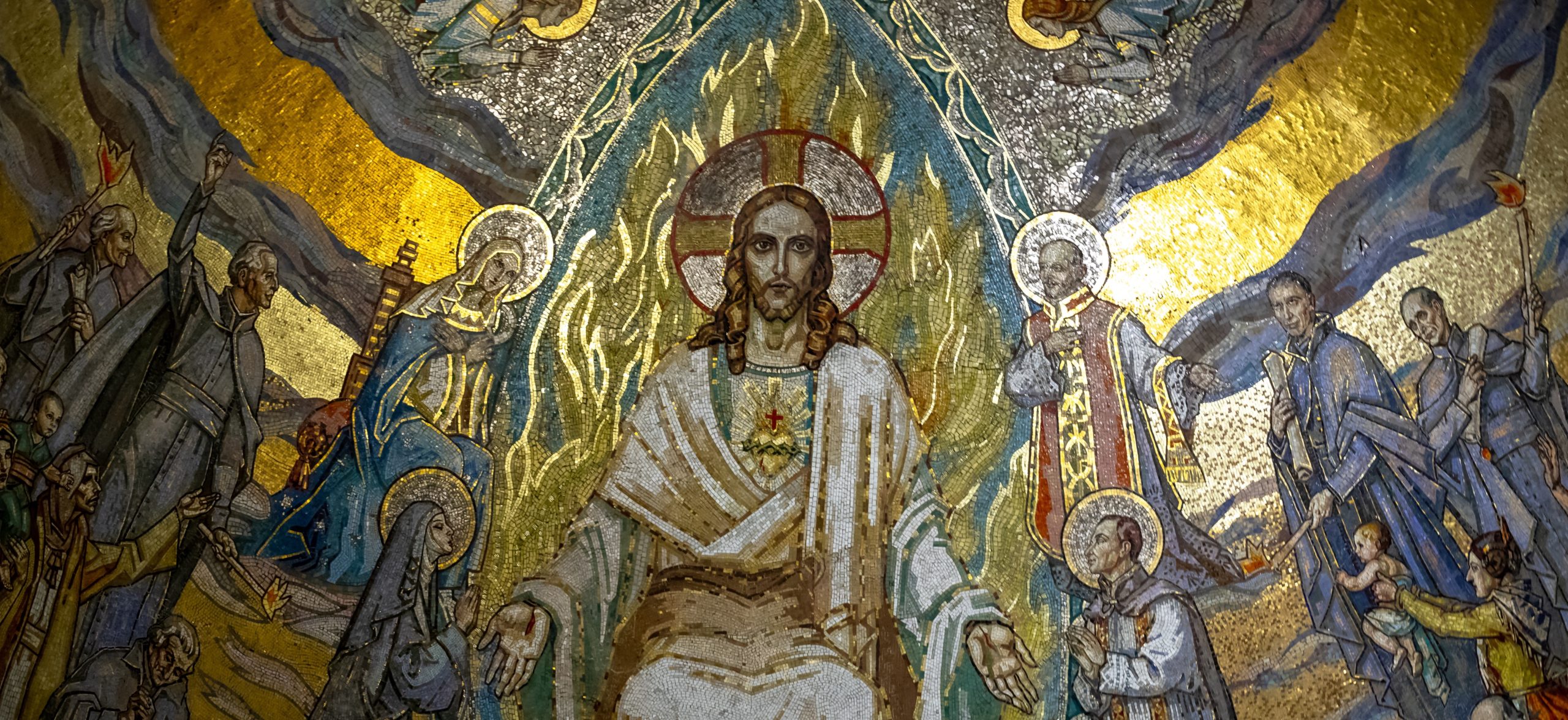On the day the sun didn’t rise in San Francisco, the early warning signs came through the screen. The 6:30 a.m. Zoom always requires unnatural light, making the outlines of faces fuzzy. The natural morning light, combined with the “Touch Up My Appearance” feature on 2020’s preferred video conferencing system, hides the marks of age and sleeplessness that most of us seek to mask. But by 9:00, the fluorescent light was still dominating the screen, and the darkness outside our windows had turned to infernal orange.
The scientific explanation for our sunless day in September is pretty dull. The clouds of soot from the largest California wildfire in history intermixed with the Bay Area’s perennial fog, turning the usual sepia hue of dirty global cities into an apocalyptic blood-orange sky. Though Twitter blamed the hellscape on far more menacing forces, the direct cause of our Blade Runner Day was mostly carbon clinging to the blue-light hues while letting the red pierce through.
If we were more like ancient peoples, many joked, we would assume the gods were enraged. We’d be running for the hills to escape their wrath, or at least head straight for our prepper bunkers. That we are unlike ancient people is actually the only myth, as this is exactly the exodus that is happening in Silicon Valley right now—and will continue for the next few years as true believers deliver themselves from this promised land.
It’s time to build, yes. But it’s also time to leave.
The battle over tech’s supremacy has been waged and all of our premonitions came true: We wanted flying cars and got vertical take-off innovation hubs from every car maker in America. Software has not only eaten the world, but feasted on your screen-weary eyes. It has swallowed your children, your church, your bank, and your politics, and somehow it all feels inevitable. That these feats of human progress—of instant connectivity in a now homebound world—became the scapegoat of our time is another symptom of the era’s end, cueing the quiet exodus of builders who had bigger aspirations than the same-day shipping that keeps our households afloat.
Now, Silicon Valley is witnessing a reckoning, but it’s not the long-awaited one predicted by the New York press, or the antitrust bonanza that Washington longs for because too many people seem satisfied getting their news from Facebook. The reckoning is more of a realization that tech exceeded expectations and somehow squandered the fruit of its own garden, and that a city on a hill that could have supported so much innovation was not Florence in the Renaissance nor the Athenian Academy with MacBooks. Rather, it became a government-sponsored needle exchange, a haven for the homeless and forgotten that put government’s paralysis on display downtown on Market Street.
2020 is not the great reckoning predicted in the book of Revelation, despite the fires, the plagues, and the wailing on Twitter. It is the resignation and determination of Exodus, of a dogged people packing up U-Hauls and fleeing this frontier state to seek an even newer, more eternal world.
San Francisco had four times as many deaths from overdose this year as it did from the COVID-19 virus.
2020 is not the great reckoning predicted in the book of Revelation, despite the fires, the plagues, and the wailing on Twitter. It is the resignation and determination of Exodus, of a dogged people packing up U-Hauls and fleeing this frontier state to seek an even newer, more eternal world.
* * *
The computer revolution of the late twentieth century has yet to be named as an epoch, but we can assume that nomenclature will begin in the coming years, alongside the battle for what it all really meant.
What we now call our “technological age” was supposed to be a full-throated and enduring argument for the future, not unlike previous epochs in history that pushed art, science, philosophy, and religion forward in dizzying ways that run counter to ordinary time. The Enlightenment. The Renaissance. The French Revolution. These movements now sit as categories on our bookshelves with clear beginnings and ends, and more importantly, clear hubs and cities of frenetic building that drove the ethos forward. Many books assume that contemporary critics or philosophers were blissfully ignorant to the unraveling of their revolutions, but we should not assume that contemporaries did not feel the same twilight setting. The figurative orange skies always creep in before dawn.
Which brings us to the supposed death of Silicon Valley, a fate that has long been predicted but with data now finally catching up. San Francisco apartment rents in 2020 have deflated by 20 percent after an up-up-and-away decade that made the city truly unlivable. Home inventory has reached a fifteen-year high in a city blighted by restrictive housing policy that makes construction cranes as miraculous as stumbling upon a burning bush. The growth in online sales-tax collection, according to the San Francisco Chronicle, is the lowest of all counties in the state of California. And public tech companies, such as Pinterest, paid upwards of $90 million to break its lease in downtown San Francisco. Some would argue this is a clear end to Bay Area tech dominance, while others would point to the many new unicorns that popped up this year despite the once-in-a-century pandemic. No one’s living here, yet somehow the companies are still growing.
Silicon Valley doesn’t really have cultural critics to weigh in on whether this era is officially over, but we do have venture capitalists. And our Nostradomuses are telling us that change is afoot.
Do we really need this office? The founders all have left.
Their entire partnership is now living in Montana. It’s only a two-hour flight away!
Denver seems like a good option, but Reno has no state income tax.
The weirdness of this exodus is that it is not driven by fear. Technologists weren’t really driven out by plague or fire or San Francisco’s insatiable need for higher tax revenue. Those ills were always apparent, and yet people stayed to carry the torch.
The exodus of tech’s true believers may be that the covenant is finally fulfilled. That when America—along with the rest of the world—met their darkest hour and turned inward, the technology that was long ridiculed as frivolous or dangerous led us to relative normalcy. The Zooms. The Tiger Kings. The Signal chats. The Slack jokes. An election news cycle that plowed ruthlessly forward on Twitter. Though inconvenient, mothers and fathers set their children in front of screens to occupy them for just long enough to survive a terrible year. And maybe, just maybe, the same-day-shipping racket that made Jeff Bezos the richest man alive was actually a feat of human genius that held the country together when public infrastructure and the social fabric were fraying at the seams. Perhaps our lowly software revolution was actually the fruition of a long-held California dream, when the physical world forced us inside and virtual life prevailed.
Silicon Valley is no longer a place, they’ll say. It’s a way of being, of building, and the latest embodiment of belief in human progress. And it’s spreading faster than the viruses and the wildfires and the apocalyptic threats that mire our physical world.
For that triumph, the nerds can now smell the impending scapegoating of their success. And like so many of history’s prophets and heretics, those who believe most fervently in the promise of technology are beginning their long march away from the Valley.
And they will substitute the virtual world for the physical space that once defined this movement. Silicon Valley is no longer a place, they’ll say. It’s a way of being, of building, and the latest embodiment of belief in human progress. And it’s spreading faster than the viruses and the wildfires and the apocalyptic threats that mire our physical world.
Silicon Valley is over. The exodus is just beginning.





